
The season of "scandal" again
After the State Council of Professors (SPC) announced the list of candidates proposed by the local SPCs for consideration for recognition as Professors and Associate Professors in 2025, the scientific community across the country began to “scrutinize” the candidates’ scientific records. Some candidates were “caught” when their scientific articles had problems.
Most recently, the scientific integrity fanpage attracted over 133,000 members to reflect information about a candidate in the medical field. According to data compared from the school library and information on student graduation theses, out of a total of 5 prestigious international articles that the candidate declared as the main author, 4/5 articles were almost completely identical to the student's graduation theses. Notably, this candidate was not a supervisor, nor was he recognized in the supervisory role.
An Associate Professor candidate in Economics was also reported to have 6/8 international articles in his scientific profile published in “predatory” journals (fraudulent, fraudulent or fake journals); 2/5 international articles of which the candidate was the main author were removed from the Scoupus list (list of prestigious world journals). Of the 27 articles published in domestic journals, 24 were published in “homegrown” journals (journals of the school where the candidate worked).
Another Associate Professor candidate of the Medical Faculty Council has had a sudden increase in the number of articles published recently. This person received his PhD in 2015. However, it was not until 2020 that he had a scientific article published in an international journal (since he received his PhD). However, in 2023, 2024 and the first 6 months of 2025, he published 40 scientific articles domestically and internationally. Specifically, in 2023, the candidate published 10 articles, with 5 articles as the main author; in 2024, he published 19 articles, with 12 articles as the main author; in the first 6 months of 2025, he published 11 articles, with 7 articles as the main author.
A scientist raised the question of why some foreign journals whose articles were removed, removed from the list of prestigious journals or even considered predatory journals were harshly criticized, while domestic journals were ignored? Is there discrimination and preferential treatment for domestic journals, even though the review process is not objective, even formal, mainly serving economic purposes?
The current consideration of the titles of Professor and Associate Professor in Vietnam, through reviewing the profiles of candidates in 2024, and the profiles of members of the Industry's Council of Professors in 2024 and 2025, shows that it is mainly based on domestic publications. Although this brings some benefits, it has many potential consequences, affecting the academic quality and international reputation of scientists when appointed to this title. According to this scientist, the consequences include the lack of a strict evaluation process according to international standards. Most domestic journals are not ranked in prestigious databases such as Scopus or Web of Science. This leads to the risk of works lacking breakthroughs or low quality still being recognized, reducing the academic value of the titles of Professor and Associate Professor when compared with developed countries.
The focus on domestic publications limits the internationalization of research. Vietnamese scientists have little incentive to publish in international journals, which have high requirements for quality and novelty. As a result, Vietnamese professors and associate professors may lack global influence, find it difficult to participate in international academic networks or compete in major research projects.
The review system based on domestic publications easily leads to the phenomenon of “inflation”. Candidates can increase the number of articles or books by publishing in less prestigious journals or duplicate content (such as similar textbooks and reference books). This reduces transparency and fairness in the review process, and creates pressure to “race for quantity” instead of focusing on quality. In particular, the lack of international publications in the review profile makes the titles of Vietnamese Professors and Associate Professors less recognized abroad, affecting the reputation of the Vietnamese university education system, especially when the country is deeply integrating internationally.
Need for multidimensional assessment mechanism
Speaking to reporters, Prof. Dr. Tran Van Chu, former Principal of the University of Forestry, former Secretary of the Interdisciplinary Council of Professors of Agriculture - Forestry, shared that since Decision 37 replaced Decision 174 (on the recognition of standards for the title of Professor and Associate Professor) and introduced international article criteria into the evaluation of candidates for Professor and Associate Professor, this issue has caused controversy in public opinion almost every year. The reason is due to the clear difference between fields: For the natural sciences and engineering, international publication is a common practice, while in the social sciences, humanities or arts, the number of prestigious international journals is very limited, language barriers and local specificities make publishing more difficult. In addition, the difference in research conditions between large central universities and local facilities also creates concerns about fairness.
The situation of chasing quantity and publishing in low-reputation journals makes the public skeptical about the real quality of international articles. Along with the fact that the title of Professor and Associate Professor is always of interest to society, every review season there are conflicting opinions about whether this criterion really improves quality or just creates more pressure and inequality for candidates, making the story never stop being hot in recent years.
“It must be said that Decision 37 does not directly cause the buying and selling of articles, but is a consequence of changes in regulations on scientific publication requirements from previous documents, combined with great pressure on the quantity and quality of articles to meet title standards and shortcomings in inspection and supervision work, leading to negative behaviors such as buying and selling of articles,” said Professor Tran Van Chu.
To overcome the controversy surrounding the international article criteria in Decision 37, there needs to be synchronous solutions that both ensure integration with international standards and are suitable for Vietnam's practical conditions. First of all, it is necessary to classify criteria by field: For natural sciences and engineering, prestigious international articles may be required; for social sciences, humanities and arts, publications in ranked national journals, monographs, or works with high practical impact may be recognized. Second, it is necessary to build and publish a list of prestigious journals, and at the same time eliminate poor quality "paid" journals to limit the pursuit of quantity. Third, the State and training institutions need to increase investment in research, support funding, facilities, and especially training and fostering the capacity to publish internationally for young lecturers.
Experts believe that it is necessary to improve transparency in the review process: The process, documents, and evidence must be made public, and independent experts must be invited to review, avoiding favoritism or "circumvention of the law". There should be a multi-dimensional evaluation mechanism: not only based on the number of articles, but also considering academic impact, contribution to training, technology transfer and social service, thereby maintaining academic standards, reducing pressure and creating more fairness for candidates.
This year, there are 933 candidates recommended by the basic Council of Professors for consideration and recognition as meeting the standards for the title of Professor or Associate Professor, an increase of 260 people compared to last year, equivalent to about 38.6%. This list does not include the number of candidates for the Council of Professors in Security Science and the Council of Professors in Military Science.

Primary school in Ho Chi Minh City hangs pictures teaching 'cause and effect', what do local authorities say?

Students in Ho Chi Minh City can have 2 weeks off for Lunar New Year

Da Nang: Boarding students have to eat and sleep in other classes, parents are upset
Source: https://tienphong.vn/on-ao-xet-cong-nhan-gs-pgs-van-ban-khoan-bai-bao-khoa-hoc-post1777411.tpo






![[Photo] Hanoi morning of October 1: Prolonged flooding, people wade to work](https://vphoto.vietnam.vn/thumb/1200x675/vietnam/resource/IMAGE/2025/10/1/189be28938e3493fa26b2938efa2059e)





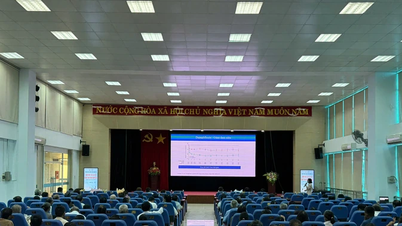

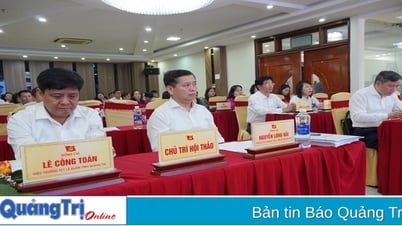
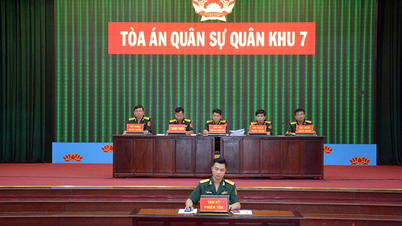

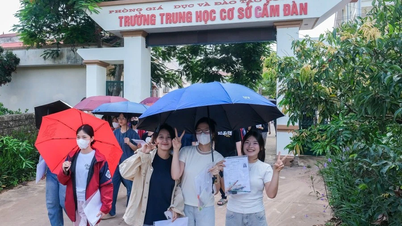

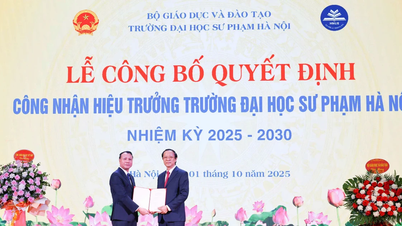
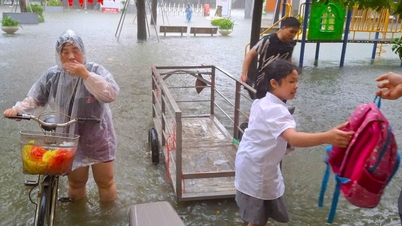

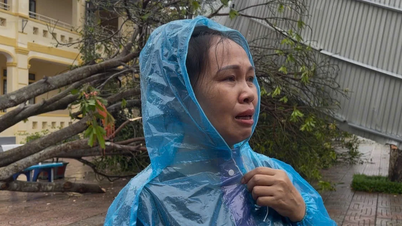
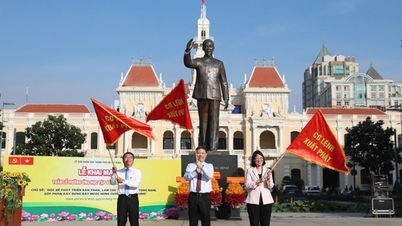












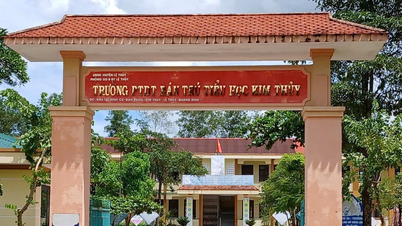
![[Photo] The 1st Congress of Phu Tho Provincial Party Committee, term 2025-2030](https://vphoto.vietnam.vn/thumb/1200x675/vietnam/resource/IMAGE/2025/9/30/1507da06216649bba8a1ce6251816820)
![[Photo] Panorama of the cable-stayed bridge, the final bottleneck of the Ben Luc-Long Thanh expressway](https://vphoto.vietnam.vn/thumb/1200x675/vietnam/resource/IMAGE/2025/9/30/391fdf21025541d6b2f092e49a17243f)
![[Photo] President Luong Cuong receives President of the Cuban National Assembly Esteban Lazo Hernandez](https://vphoto.vietnam.vn/thumb/1200x675/vietnam/resource/IMAGE/2025/9/30/4d38932911c24f6ea1936252bd5427fa)





















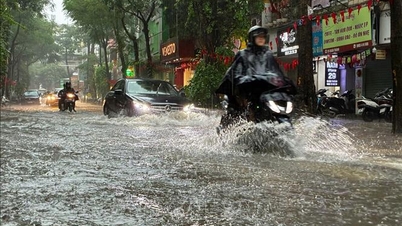
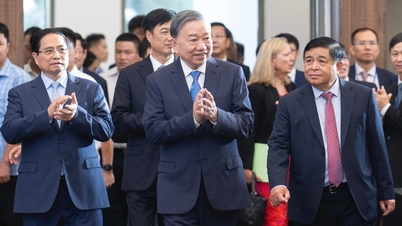
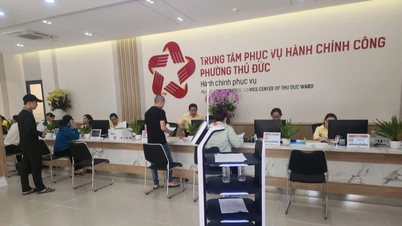
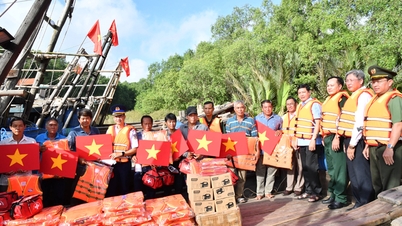
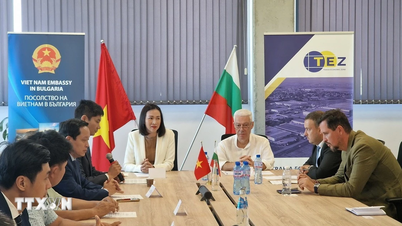
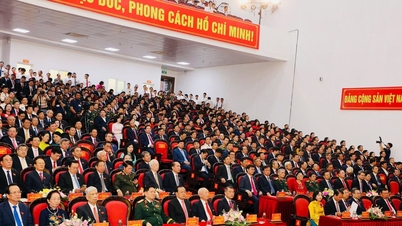

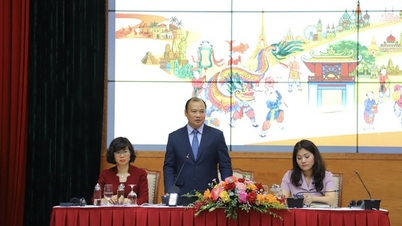



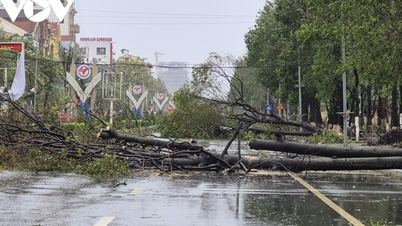

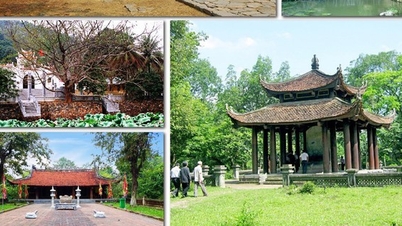


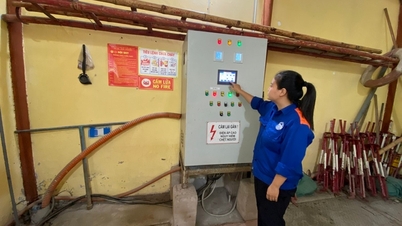
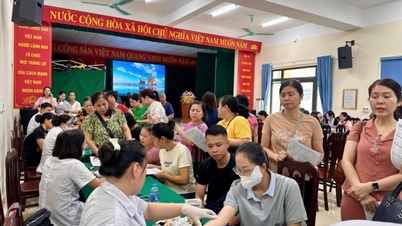



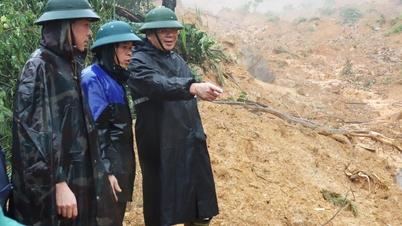

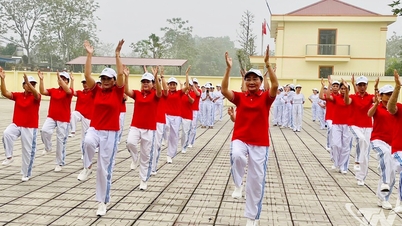















Comment (0)